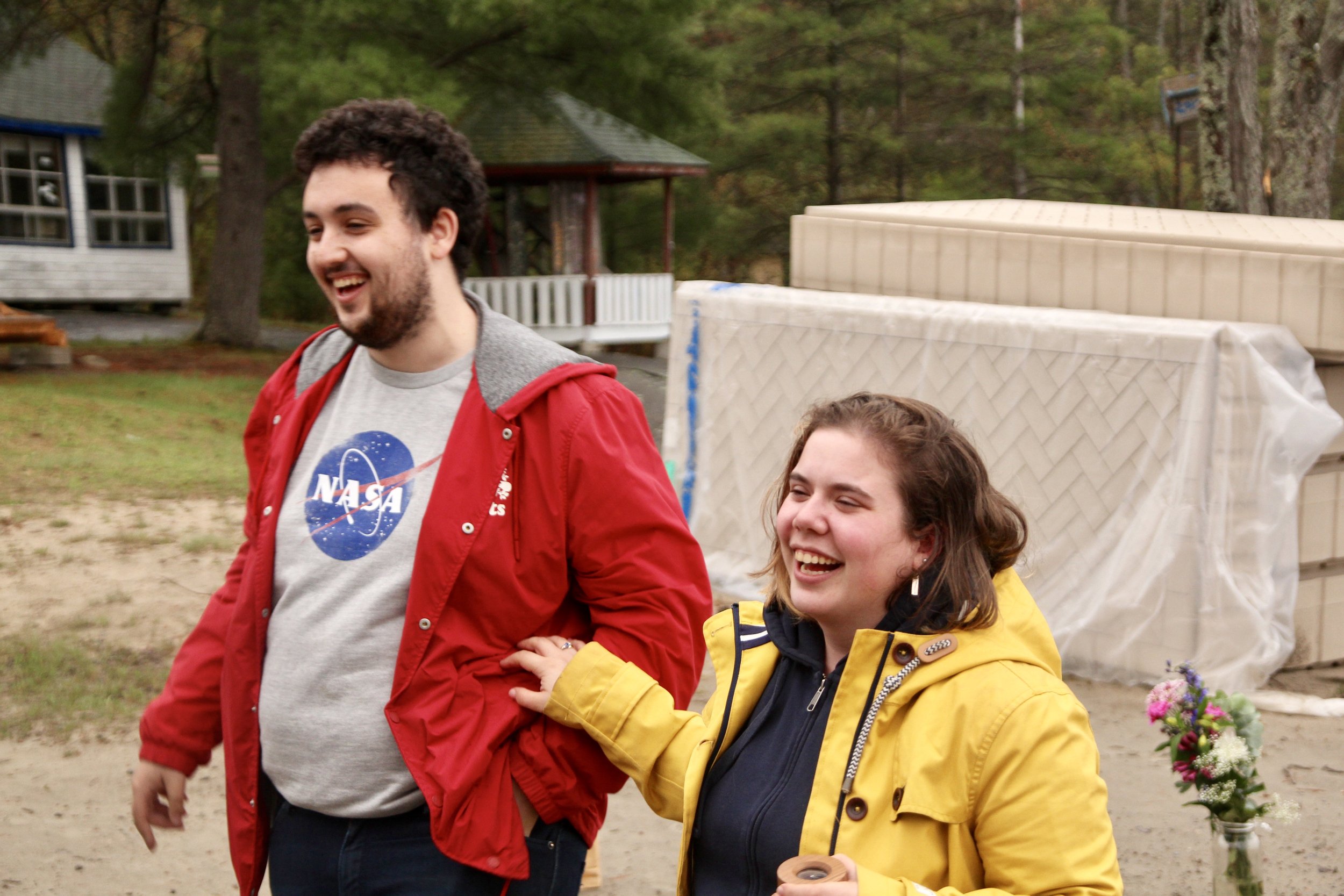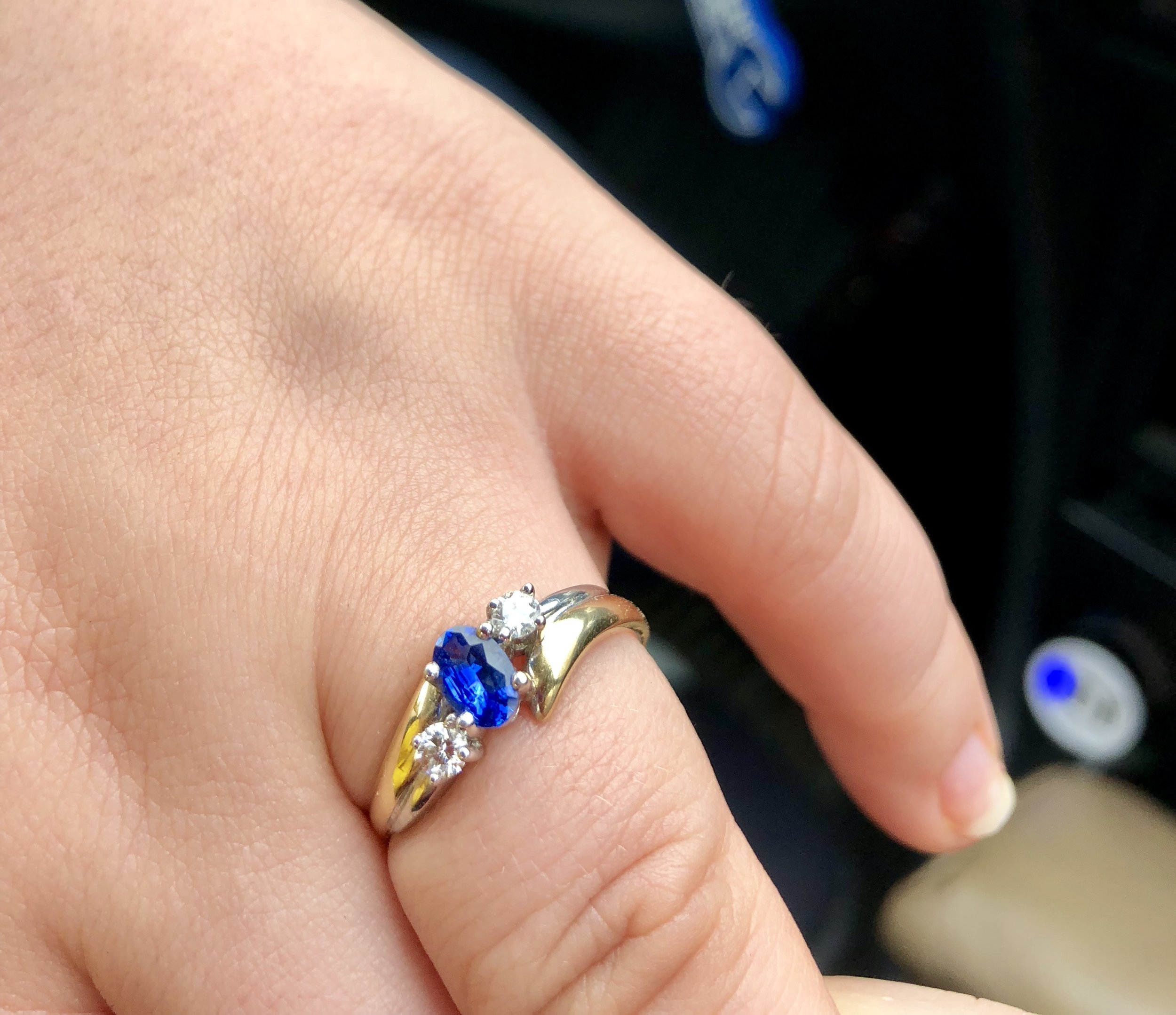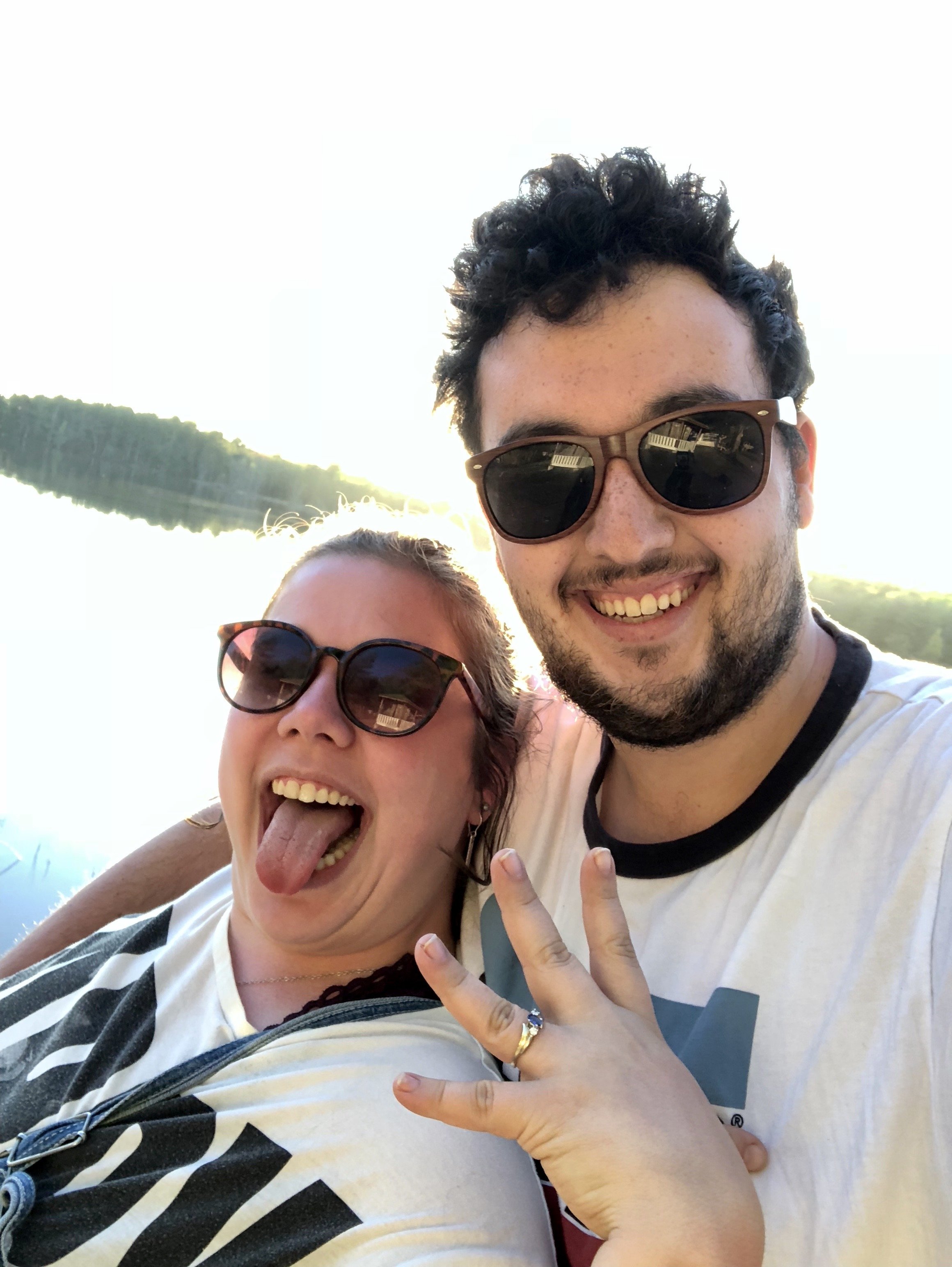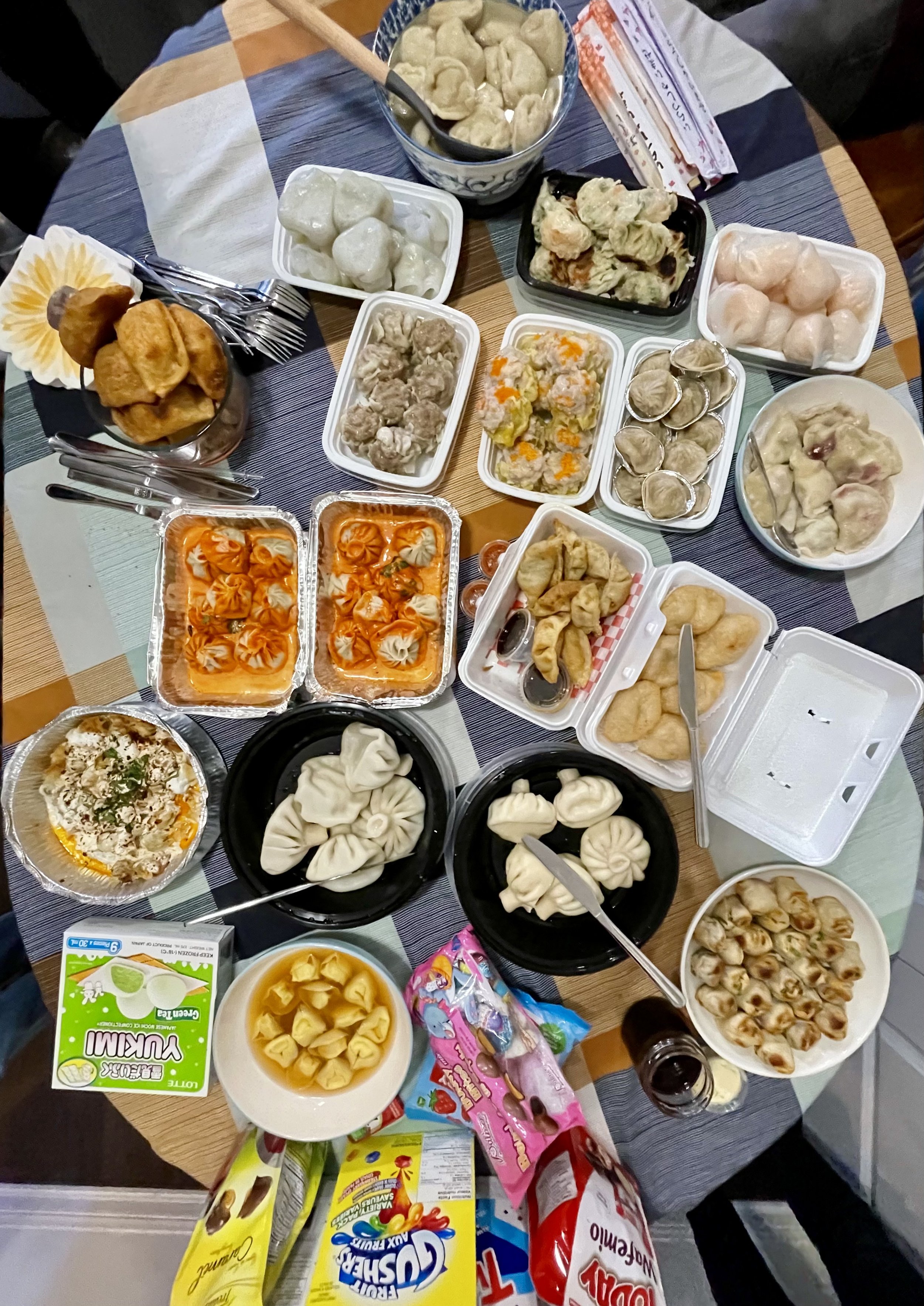Stuff II: The Really Big Stuff
I want to preface this post by giving you a heads up that it’s a bit ‘heavier’ than previous posts, and subsequently, the number of funny gifs are at a minimum.
In an earlier post, I discussed how people are left with stuff after someone dies, and the hardships and struggles that come along with this particular aspect of grief. The fact that you are left with objects that suddenly have lost their original purpose and how it is up to you to go about finding new meaning, redefining their value after their user has gone. In that post I outline three main types of stuff: stuff you throw away, stuff you donate, and Big Stuff. The latter being the kind of object that strongly represents the person who died and can be reimagined as an item that provides that specific warm, sad, melancholia that anyone who has lost someone knows intimately.
However, I alluded to there being a subsection of Big Stuff that requires its own post: The Really Big Stuff (again, anyone out there with a better phrase, I’m all ears). This is the stuff that has an exceptionally powerful emotional component to them and also can’t easily be repurposed, for either practical or heartbreaking reasons. Found in a sort of liminal space that a few rare objects exist. For me, I have two pieces of Really Big Stuff that are both linked to each other. This is a post about these two items.
The first is Julie’s engagement ring. I bought it with my sister from a jewellers in Glasgow before I immigrated and proposed to her surrounded by all our friends at the camp where she grew up and where we first met, a truly perfect memory.
Jules wasn't one to wear rings, but she wore it with great pride and would love any and all compliments she’d get on it. I had made a distinct choice to not go down the super-traditional route of it being a diamond ring, and instead chose one with a sapphire as it’s centre stone, intending to match the beat-of-your-own-drum energy that Julie radiated so strongly. The idea of a ring being some sort of token of quasi-ownership (the ‘he put a ring on it’ of it all) was not something that either of us were super comfortable with, so she made a point of buying me a watch in reciprocation. Now, instead of having something that represented one person’s agreement to marry the other, we now each had an object that stood for the deep love and care we shared for each other.




This ring now sits in its box on my chest of drawers. During the shiva and on specific dates in the time since like birthdays and anniversaries, I’ve worn it on a necklace that she received from my parents, which offers some comfort, but that's only for a fraction of the entire year. I don’t know what to do with it. I don’t think I’ll ever know what to do with it. It can’t be donated, it can’t be thrown out. It has become a relic of our relationship. I know that what I need to do is work on accepting that this new purpose is purposeful enough, and that I will hopefully find comfort when I tbox, but that reality feels a long way away.
The other piece of Really Big Stuff is a whole other thing altogether, her unused wedding dress.
Julie was passionate about costume, fashion and design. From the get-go, she knew she wanted a dress that was personal to her, that was different from the traditional. She reached out to a designer in Ottawa who had designed a dress for a best friend, and started working with her on creating something for our wedding. We were both keen to a) not spend ludicrous sums of money on a dress and b) to create something that could eventually be altered and adjusted for future use so it wasn’t a one-off dress. She spent ages finding a fabric that she liked to send over, and would sketch multiple ideas out before settling on the direction she wanted to go. In what feels like a poetic level of tragedy, Julie never got to wear this dress as, thanks to COVID, our wedding got postponed twice, and then cancelled after her death.
The wedding in particular, is such an intense space of sadness for me. It was initially planned for August 2020 so, by the time lockdowns started happening, we already had it pretty much planned to the minute. We had a schedule, band, food, drinks all sorted out. We had acquired the materials to make our chuppah (wedding canopy) and had spent significant time with our rabbi writing a kettubah (marriage document) that reflected our values. We were completely ready to go. This was going to be our one big opportunity to get both of our families and friends together to celebrate. We had chosen to wait two years from our engagement to have the wedding so as to allow everyone from all over enough time to make arrangements. This is one of my few lasting regrets of it all. We pushed the wedding twice as it became clear COVID was around for the long run. I have emails from family and friends in response to our postponements sending good vibes and messages along the lines of “at least we now have something to look forward to when this all ends”. This seems comically tragic at this point. It is so gut-wrenchingly frustrating that we never got there in the end.
So now, in our best friend’s mum’s house, there hangs a one-of-a-kind wedding dress, its purpose never fulfilled. It goes without saying, but it’s absolutely gorgeous. I saw it for the first time about 3 months after Julie died and it was definitely the most I had teared up since the funeral. I had debated trying to take a picture of it for this post but I couldn’t bring myself to look at it again, especially so close to her birthday.
I know that what I should do with it is donate it to a charity that can provide affordable or free wedding dresses to people who, as everyone does, deserve the celebration they want without the financial burden, but as of yet, I just can’t bring myself to do that. I know I’m under no pressure to do so and things will happen in their own time, but also I know the dress exists and is 20 mins away from me right now, just hanging there. This dress, that is a direct reflection of her taste and passions, that is shaped like her and is the single most powerful marker of a wedding that never happened. One that she was so excited for, that we had planned, that invites (and reschedules) had been sent out for. The one physical object that remains from this is her wedding dress. Giving that away feels almost impossible at this moment. This is definitely one of the more bleak ways to end a post as I know the ‘stolen wedding’ is a particularly tragic aspect of my circumstances, but unsurprisingly, grief can be exceptionally bleak at some points.
And this is the unfortunate reality of it all. Despite our best intentions to try and find some heartwarming and meaningful new purpose in the stuff left behind, sometimes, it just isn’t achievable. Sometimes, that new purpose is a reminder of what once was. A reminder of what was lost and what can’t return. It becomes ‘Sad Stuff’. It won’t get thrown out, or given away (at least immediately). It’ll likely follow you from place to place, just living it whatever space it’s been given: a drawer, a box under the bed, a shelf, existing as relic of a previous life. Ultimately, it’s about accepting that this is inevitable and knowing that hopefully, that raw sadness mellows out over time.
I’m not there yet, and I have no idea what measure of time it might take for this change to happen. I do have faith that eventually I will be able to figure out a solution with the dress and find a use for the ring, but it’s fruitless to try and force that progress. As new experiences, people and stuff enter my life, what already exists will naturally find a new space and meaning. As goes a motto between me and a best friend, that’s much easier said than felt.
This post has been distinctly more intense than others (at least from my perspective of writing it), and I feel that I don’t want to leave it on such a bleak note, so here’s a fun gif of a dog.








